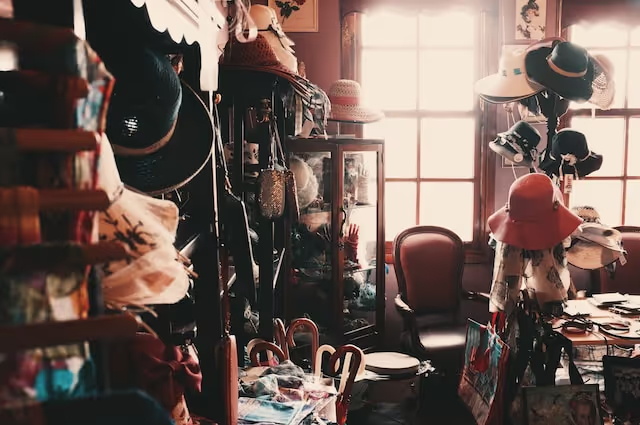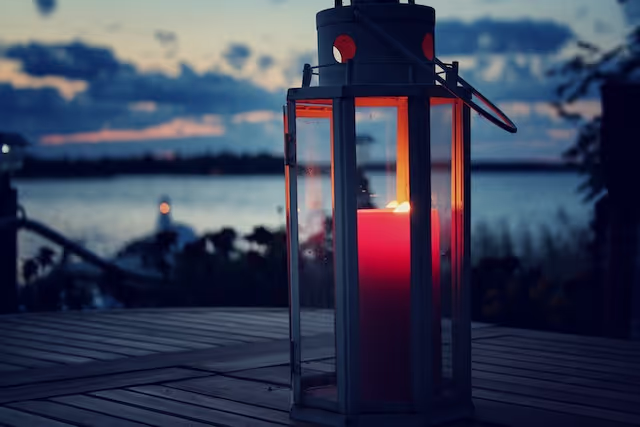
Blog
How to Declutter and Downsize Without the Stress
10 Decluttering Hacks for a Stress-Free Transition
Are you preparing to downsize your home? Get ready for a rollercoaster of emotions, from nostalgia to sheer panic.
Downsizing and decluttering can be a daunting and exhausting task.
But it’s also an opportunity to distinguish between what truly matters and what's just clutter. It’s like a crash course in forced minimalism, urging you to prioritise experiences and connections over stuff.
Let’s explore some simple hacks for decluttering before downsizing to a smaller home.
The Emotional Rollercoaster
Downsizing can be a difficult emotional journey. We often accumulate possessions over the years, and each item holds a memory or a story.
Letting go of these items can feel like parting with a piece of ourselves, but it's important to remember that our belongings do not define us. Holding onto unnecessary items can weigh us down physically and emotionally.
Popular organisation guru Marie Kondo, who has rocketed to fame in recent years, encourages her clients to only keep items that “spark joy” in them.
"Truly precious memories will never vanish even if you discard the objects associated with them. No matter how wonderful things used to be, we cannot live in the past. The joy and excitement we feel here and now are more important.”
10 Decluttering Hacks to Conquer the Chaos
Now that you're ready to declutter, it's time to put some practical strategies into action. Here are 10 tips to help you get started:
1. Start the Process Early
When you start downsizing it can seem like an impossible task. It’s important to begin decluttering at least three months ahead of your big move to save yourself from the last-minute chaos.
Rushing this process is a recipe for mistakes. Think ahead and envision your new space. Consider what furniture fits and what needs a new home.
2. Tackle One Room at a Time
Do not try to declutter your entire house in one go. Start with one room and work your way through the rest.
3. Start in a Room You Don’t Use Often
This can be an easy way to find things you haven’t used in a long time and no longer need. You might be surprised what you find tucked away in the cupboards and drawers!
4. The Rule of Three
Channel your inner Marie Kondo and adopt the rule of three: keep, donate, toss.
This approach forces you to confront every item, making tough decisions easier. If it doesn't serve a purpose or bring you joy, it's time to set it free.
Learn more: the best spare items to sell from home
5. Digitise
Digitise old documents and even your beloved music and movie collections. Scan old photos to create a virtual scrapbook. Not only does this save space, but it ensures your memories are forever preserved, even if your physical belongings are somehow lost or perish.
6. Cleanse Your Closet
Picture this: You open your closet, and it's crammed with clothes you haven't worn in ages, collecting dust like museum relics. You look around your room, overrun by knick-knacks, and wonder, "Do I even need all this?"
The answer is probably not. Curate a wardrobe that screams chic minimalist. If you haven't worn it in the last year, chances are you won't miss it.
7. The Sentimental Showcase
Create a designated space for sentimental items. Whether it's a memory box or a dedicated shelf, this showcase will not only ease the downsizing process but also serve as a heartwarming reminder of the journey behind you.
8. Collaborative Cleanup
Turn decluttering into a family affair. Gather the troops, turn on some music, and turn sorting through possessions into a fun bonding activity. Remember, the more hands, the lighter the load.
You can even enlist the help of friends or a professional organiser.
9. The Five Second Rule
Some items will be easy for you to get rid of, while others might have you second guessing yourself. Whether it’s your daughter’s barbie from when she was a young girl, or the beaten-up travel guide you used overseas, it can be hard to decide whether it should stay or go.
The five second rule is a decluttering trick which involves picking up an item, counting down from five, and deciding on whether to keep it within that timeframe.
“The act of counting down has a strong psychological effect and actually helps propel people into taking action,” explains Amanda Wiss, Founder of Urban Clarity.
10. The ‘One In, One Out’ Rule
Maintain balance with the 'One In, One Out' rule. If you have several of the same pans, keep one and rehome the rest. Plus, every time you acquire something new in your new home, say farewell to something old. This not only keeps your space clutter-free but also ensures each addition is a deliberate choice.
Let Go of the Never-Ending Buying Cycle
In a world that keeps urging us to buy, buy, buy, it's time to take a step back and reevaluate our lives.
“Nothing sours you on consumerism like moving [house]. Especially when you’re moving out of a home you’ve occupied for 20 years to a new place half the size,” writes David Pogue, a CBS Sunday Morning correspondent.
“On our way to becoming empty nesters this fall, my wife and I had accumulated a mountain of material goods. I mean, So. Much. Crap. We faced down closets full of kid stuff (toys, bikes, sports, instruments, costumes, books), superfluous house junk (furniture, rugs, bedclothes, garage crud), and, of course, all our own crap: the amassed clothing, equipment, and stacked attic relics of our time on earth so far. I’m not a hoarder; I’m really not. I’ve just been a little busy for the past 20 years.”
Instead of dumping his items, he attempted to engineer “a landfill-free move”, hosting a free garage sale, using Facebook Marketplace, and giving to non-profit organisations that rehome bathroom and kitchen items.
“My grand decluttering really has poisoned consumerism for me. I’ve developed a mental tic about acquiring new physical objects; the first thought that pops into my brain is, someday, I’ll have to unload this. Fortunately, there’s always a second thought: And damn, will it feel good.”
In the movie ‘Fight Club’ Tyler Durden, played by Brad Pitt, declared: “The things you own end up owning you. It's only after you lose everything that you're free to do anything.”
It’s a famous line many of us can relate to.
Hugo de Sousa, Editor of The New Project Manager, says the quote by Tyler Durden was right.
“You start your professional life. You get your first salary. A never-ending cycle begins:
- You buy a “thing”.
- You get that feeling of achievement!
- You think that you need to buy another thing!
- You don’t even remember how many “things” you have.
- You think that owning things will give you happiness.
- Repeat.”
He wrote in a post on Medium that most people only realise the quote from Fight Club was right when their possessions don’t solve their problems.
He says more than 90% of his professional life was based on financial success.
“Nowadays I really believe that you should only own a basic set of things. Good things, why not? Things that give you happiness because they solve your minimum “Maslow” needs. For instance, if you need to own a pen, make it a Mont Blanc, why not? But probably you don’t need two!”
The Research
Cleaning out your home isn’t just about aesthetics; it can help declutter your brain.
A team of researchers at Princeton University used functional MRI and other techniques to test the brain’s response to clutter. They found our environment can negatively or positively impact our ability to perform tasks and our mental health.
The researchers found clutter and disorganisation can make our brains feel scattered and can activate the amygdala, the part of the brain responsible for fear and anxiety.
Australian neuroscientist Dr Sarah McKay says the human brain can become overwhelmed and overstimulated when faced with visual chaos as it “makes it harder to focus because the brain is trying to process too many information streams”.
A study published in Personality and Social Psychology Bulletin also found women who saw their home as cluttered were more likely to feel tired, show signs of depression, and exhibit higher levels of the stress hormone cortisol, compared with those in tidier homes.
“A cluttered home can lead to higher levels of cortisol so it gives you that sense of feeling overwhelmed,” Rachel Barthow of interior design One Something Studio told Good Magazine.
“I feel we can have a truly richer experience of relaxation when we have an uncluttered home.
“Personally, I feel more rested if there aren’t lots of visual reminders of all the things that I need to do, like toys on the floor, clutter on surfaces and washing needing to be put away,” says Barthow.
She says clutter can negatively affect your ability to complete everyday tasks and can cause tension in relationships if one person in the relationship creates more mess.
The Bottom Line: Declutter Your House and Life
Let's face it - clutter has a sneaky way of creeping into our lives without us even noticing.
Downsizing offers you a prime opportunity to reassess what you own.
Ask yourself: Do I really need this item? If the answer is no, it's time to let it go.
Marie Kondo hits the nail on the head when she states, "Owning fewer possessions isn't just about minimalism – it's about making room for more life."
International clutter organiser Peter Walsh agrees.
"Clutter isn’t just the stuff on the floor. It’s anything that gets between you and the life you want to be living.”
The key to unlocking a life of abundance lies not in what you possess but in what you choose to let go - so declutter your space, liberate your mind, and enjoy a life well-curated.
You may also like:

The Property Market Awakens: What It Means for You

Best Evening Routines for Wealth and Wellbeing


